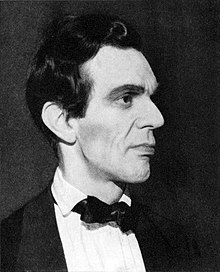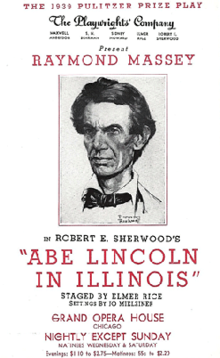
Our Town is a three-act play written by American playwright Thornton Wilder in 1938. Described by Edward Albee as "the greatest American play ever written", it presents the fictional American town of Grover's Corners between 1901 and 1913 through the everyday lives of its citizens.

Raymond Hart Massey was a Canadian actor, known for his commanding, stage-trained voice. For his lead role in Abe Lincoln in Illinois (1940), Massey was nominated for the Academy Award for Best Actor. He reprised his role as Lincoln on television and in How the West Was Won (1962). Among his other well-known roles were Dr. Gillespie in the NBC television series Dr. Kildare (1961–1966), John Brown in Santa Fe Trail (1940) and Seven Angry Men (1955), Abraham Farlan in A Matter of Life and Death (1946), and Jonathan Brewster in Arsenic and Old Lace (1944).
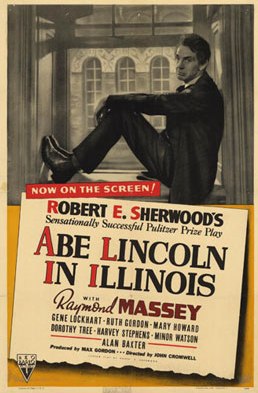
Abe Lincoln in Illinois is a 1940 biographical-drama film that depicts the life of Abraham Lincoln from his departure from Kentucky until his election as president of the United States. In the UK, the film is known by the alternate title Spirit of the People. The film was adapted by Grover Jones and Robert E. Sherwood from Sherwood's 1938 Pulitzer Prize-winning play of the same name. It was directed by John Cromwell.
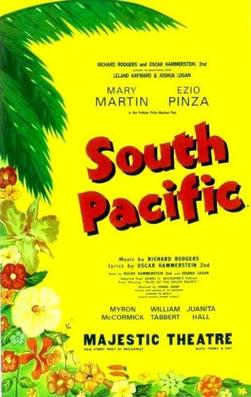
South Pacific is a musical composed by Richard Rodgers, with lyrics by Oscar Hammerstein II and book by Hammerstein and Joshua Logan. The work premiered in 1949 on Broadway and was an immediate hit, running for 1,925 performances. The plot is based on James A. Michener's Pulitzer Prize–winning 1947 book Tales of the South Pacific and combines elements of several of those stories. Rodgers and Hammerstein believed they could write a musical based on Michener's work that would be financially successful and, at the same time, send a strong progressive message on racism.

Samuel Atkinson Waterston is an American actor. Waterston is known for his work in theater, television, and film. He has received numerous accolades including a Primetime Emmy Award, Golden Globe Award, and Screen Actors Guild Award as well as nominations for an Academy Award, a Tony Award, and a BAFTA Award. His acting career has spanned over five decades acting on stage and screen. Waterston received a star on the Hollywood Walk of Fame in 2010 and was inducted into the American Theater Hall of Fame in 2012.

Mary Ann Todd Lincoln served as the first lady of the United States from 1861 until the assassination of her husband, President Abraham Lincoln, in 1865.

Young Mr. Lincoln is a 1939 American biographical drama western film about the early life of President Abraham Lincoln, directed by John Ford and starring Henry Fonda. Ford and producer Darryl F. Zanuck fought for control of the film, to the point where Ford destroyed unwanted takes for fear the studio would use them in the film. Screenwriter Lamar Trotti was nominated for an Academy Award for Best Writing/Original Story.
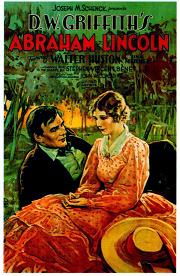
Abraham Lincoln, also released under the title D. W. Griffith's "Abraham Lincoln", is a 1930 pre-Code American biographical film about Abraham Lincoln directed by D. W. Griffith. It stars Walter Huston as Lincoln and Una Merkel, in her second speaking role, as Ann Rutledge. The script was co-written by Stephen Vincent Benét, author of the Civil War prose poem John Brown's Body (1928), and Gerrit Lloyd. This was the first of only two sound films made by Griffith.

Robert Emmet Sherwood was an American playwright and screenwriter.
The sexuality of Abraham Lincoln has been the topic of historical speculation and research. No such discussions have been documented during or shortly after Lincoln's lifetime; however, in recent decades, some historians and authors have begun discussing potential evidence that he may not have been heterosexual.
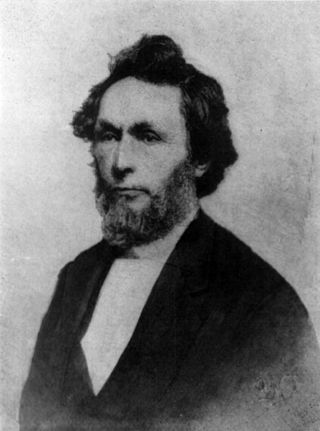
William Henry Herndon was a law partner and biographer of President Abraham Lincoln. He was an early member of the new Republican Party and was elected mayor of Springfield, Illinois.

Ann Mayes Rutledge was allegedly Abraham Lincoln's first love.
J.B. is a 1958 play written in free verse by American playwright and poet Archibald MacLeish, and is a modern-day retelling of the story of the biblical figure Job. The play is about J.B., a devout millionaire with a happy domestic life whose life is ruined. The play went through several incarnations before it was finally published. MacLeish began the work in 1953 as a one-act production, but within three years, had expanded it to a full, three-act manuscript.
John Cromwell was an American film and stage director and actor. His films spanned the early days of sound to film noir in the early 1950s, by which time his directing career was almost terminated by the Hollywood blacklist.
Topdog/Underdog is a play by American playwright Suzan-Lori Parks which premiered in 2001 off-Broadway in New York City. The next year it opened on Broadway, at the Ambassador Theatre, where it played for several months. In 2002, Parks received the Pulitzer Prize for Drama and the Outer Critics Circle Award for the play; it received other awards for the director and cast. In 2023, it won the Tony Award for Best Revival of a Play.
Daniel John Sullivan is an American theatre and film director and playwright.

Abe is a musical in two acts based on the life of President Abraham Lincoln with book & lyrics by Lee Goldsmith, music by Roger Anderson and orchestration by Greg Anthony. The musical covers the life of Abraham Lincoln from his earliest attempts at self-improvement through the 1860 election which made him the 16th president of an already fracturing United States. Also explored is Lincoln's youth as a flatboat pilot on the Mississippi, his early love for Ann Rutledge, his troubled marriage to the difficult and mentally fragile Mary Todd, and his attempt to be a good father to his sons.
Disgraced (2012) is the first stage play by playwright, novelist, and screenwriter Ayad Akhtar. It premiered in Chicago and has had Off-Broadway and Off West End engagements. The play, which won the 2013 Pulitzer Prize for Drama, opened on Broadway at the Lyceum Theater October 23, 2014. Disgraced has also been recognized with a 2012 Joseph Jefferson Award for New Work – Play or Musical and a 2013 Obie Award for Playwriting. The 2014 Broadway transfer earned a nomination for Tony Award for Best Play in 2015.
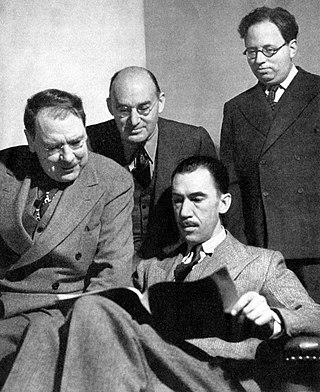
ThePlaywrights Company (1938–1960) was an American theatrical production company.
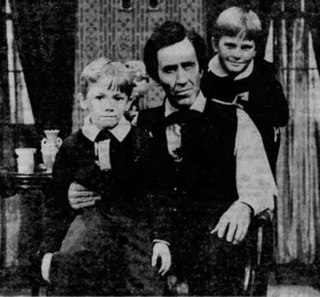
"Abe Lincoln in Illinois" was an American television play broadcast on NBC on February 5, 1964, as part of the television series, Hallmark Hall of Fame. It was adapted from Robert E. Sherwood's 1938 Pulitzer Prize-winning play. Jason Robards was nominated for an Emmy as outstanding single performance by an actor in a leading role for his portrayal of Lincoln.
